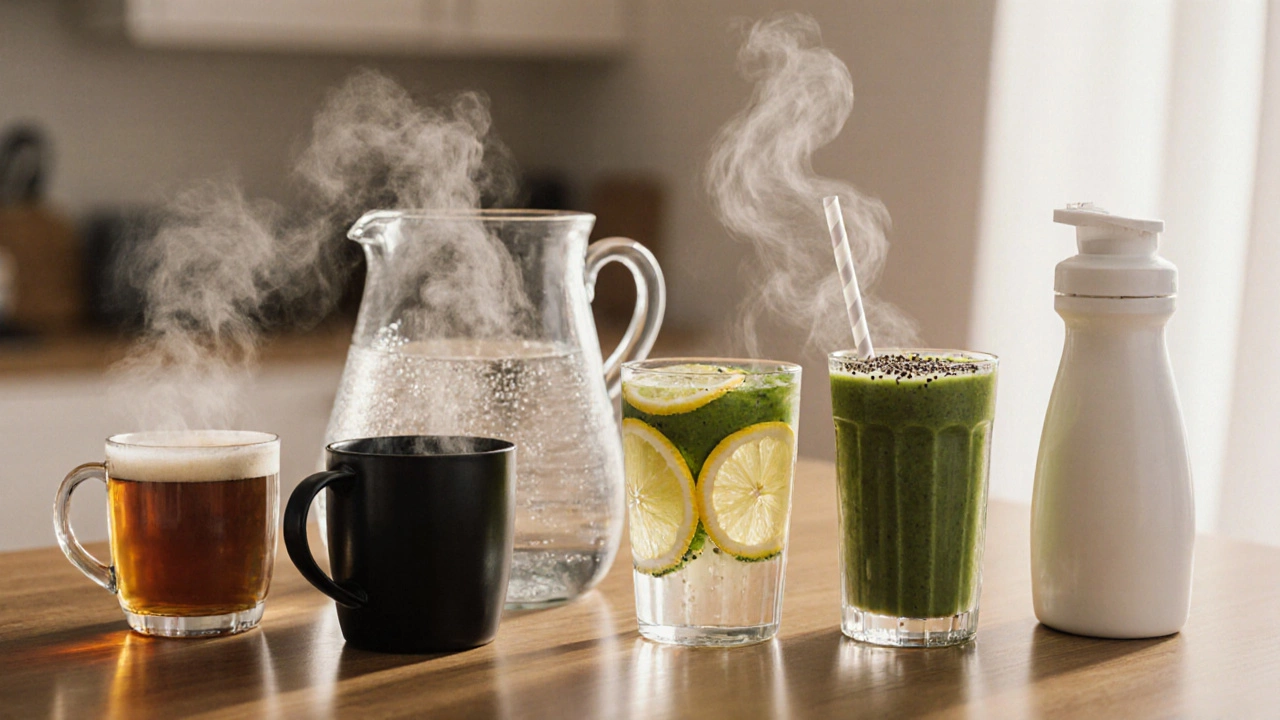When working with hydration for weight loss, using the right fluids to support fat burning, curb cravings, and improve exercise performance. Also known as optimal water intake, it is closely linked to water intake, the daily volume of plain water you drink, metabolism, the body’s process of turning food into energy, and appetite control, how fluid balance influences hunger signals. Understanding these connections makes it easier to turn a simple habit into a powerful fat‑loss tool.
First off, drinking enough water raises your resting metabolic rate by about 10‑30%. That means you burn a few extra calories just by staying hydrated. The effect isn’t magic, but it adds up—especially when you pair it with a moderate calorie deficit. In practical terms, swapping sugary drinks for water can shave off 150‑200 calories a day, which translates to roughly half a pound of fat loss each week.
Beyond calories, water plays a starring role in appetite control. Your brain reads signals from stretch receptors in the stomach; when you’re mildly dehydrated, those receptors send mixed messages, making you feel hungrier than you actually are. A simple trick is to sip a glass of water before each meal. Most people notice they need less food to feel satisfied, and that naturally helps keep the calorie deficit intact.
Timing your hydration around workouts also matters. Consuming 200‑300 ml of water 20‑30 minutes before exercise improves blood volume, which enhances oxygen delivery to muscles. During a high‑intensity interval session, you can lose up to 1 liter of sweat; replacing that loss helps maintain performance, so you can push harder and burn more fat. Post‑workout, rehydrating with water plus a pinch of electrolytes (like a splash of citrus juice or a pinch of sea salt) speeds recovery and prevents the post‑exercise fatigue that often leads to skipping the next training day.
Not all drinks are created equal. Lemon water, green tea, and apple cider vinegar teas often pop up in weight‑loss articles. The truth? They work mainly because they’re low‑calorie and encourage you to drink more. Lemon adds a pleasant flavor, making it easier to meet your daily water goals, while the vitamin C may support adrenal function during stress. Green tea offers a modest caffeine boost and catechins that slightly increase fat oxidation—but the impact is small compared to simply drinking enough plain water.
For those who struggle with plain water, try these evidence‑backed tweaks: add cucumber slices, a few berries, or a splash of 100 % fruit juice. These add flavor without loading up on sugar. If you’re training in hot climates, consider an electrolyte‑rich drink that contains sodium, potassium, and magnesium—but keep added sugars below 5 g per litre.
Now that you see how hydration for weight loss ties into metabolism, appetite control, and workout efficiency, you’re ready to put the knowledge into action. Below you’ll find a mix of workout guides, diet plans, and drink ideas—all designed to help you harness the power of proper fluid balance on your weight‑loss journey.

Discover the top weight‑loss drinks, how they work, simple recipes, and a daily sipping schedule to boost metabolism, curb cravings, and speed up fat loss.
READ